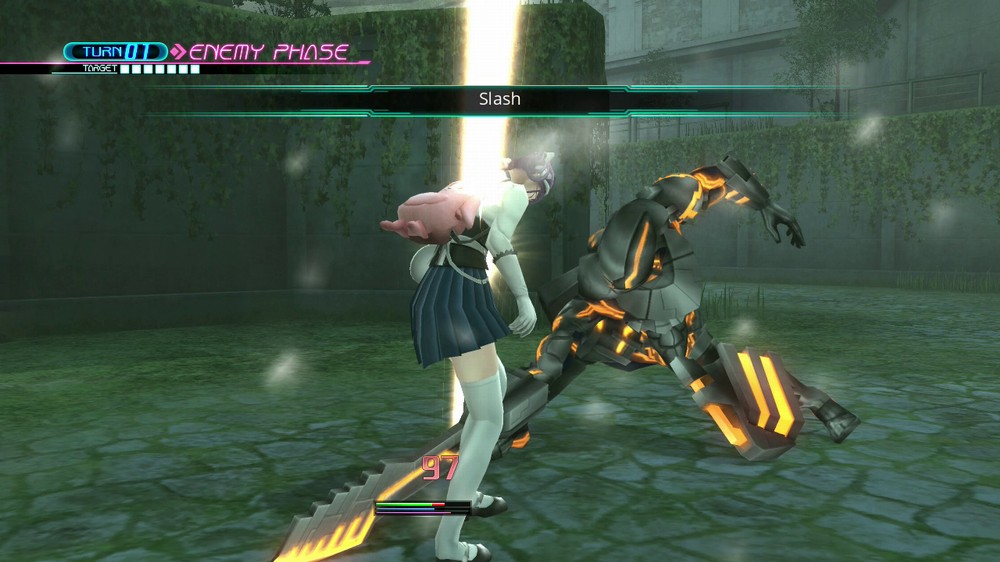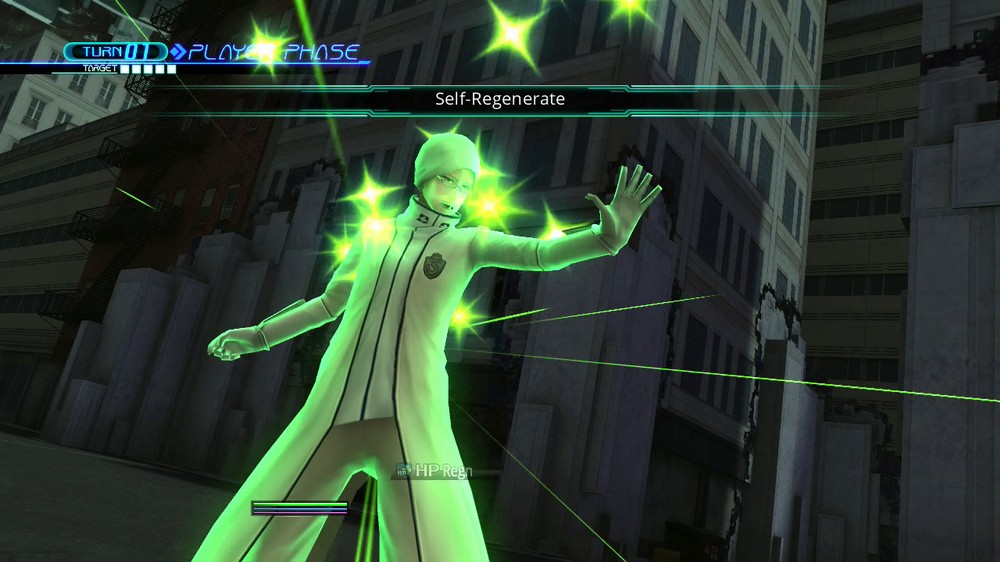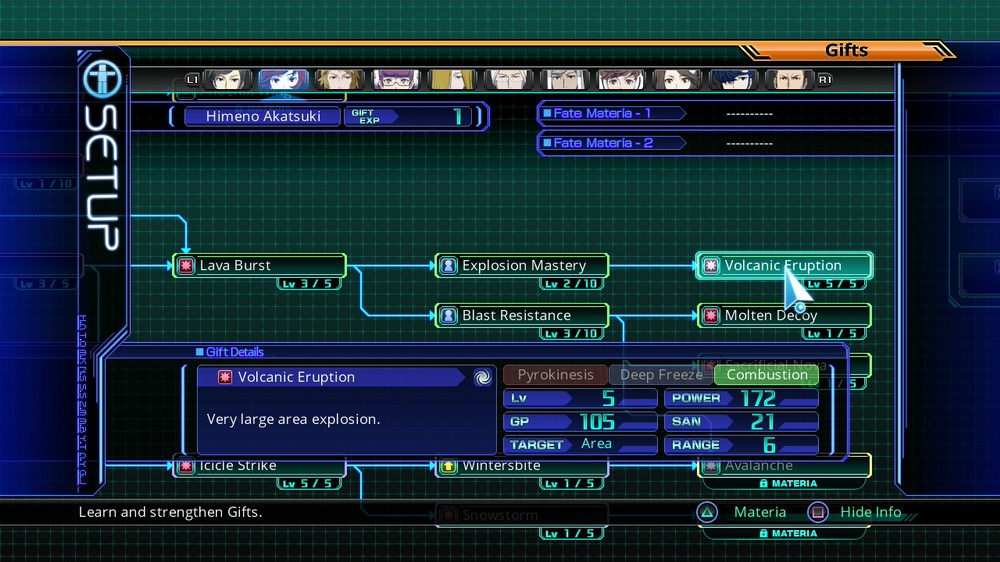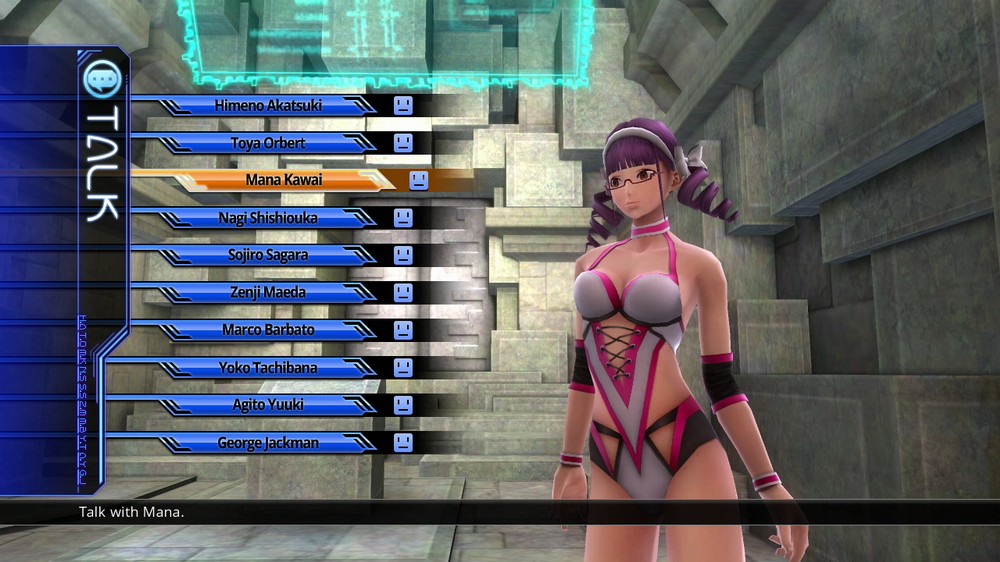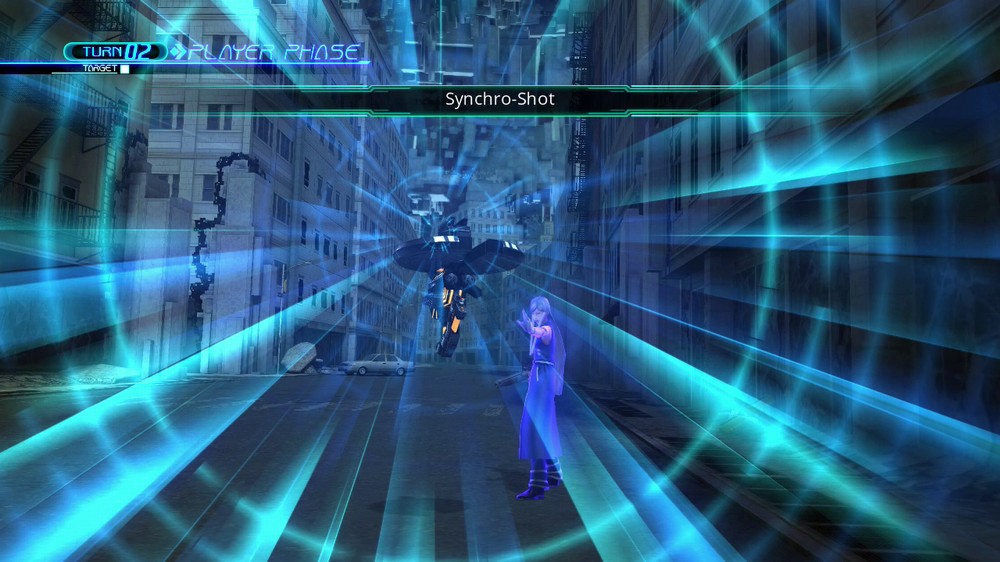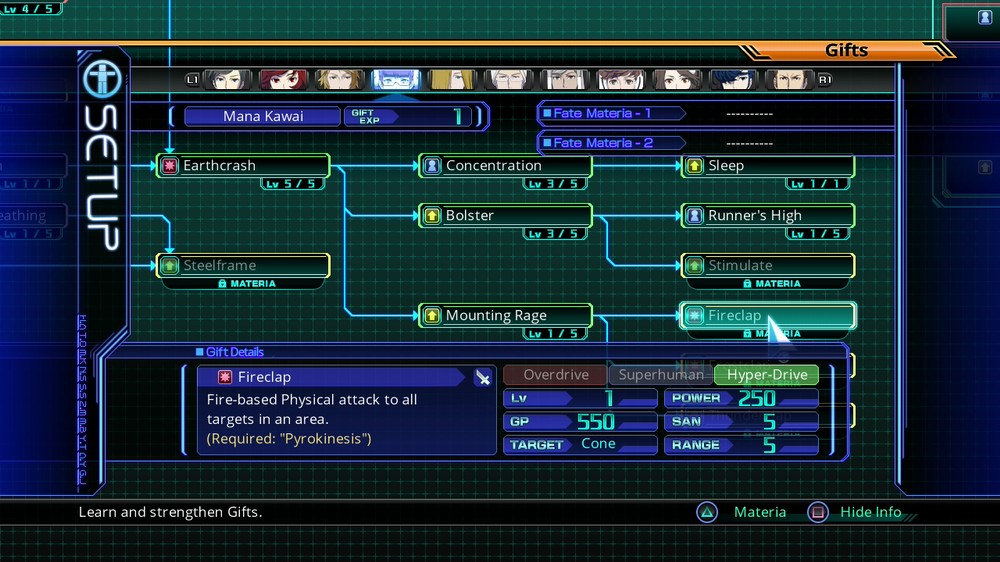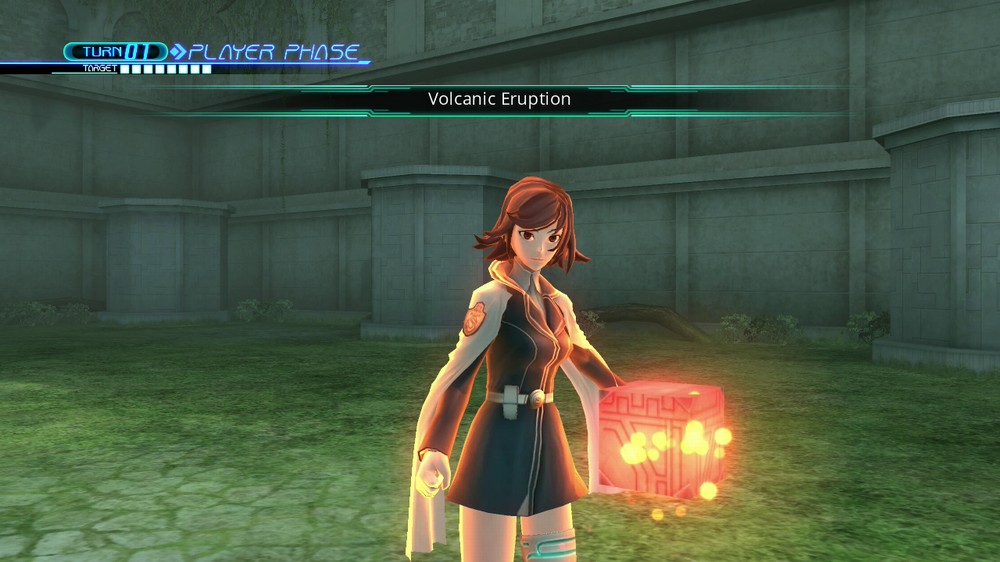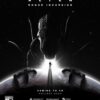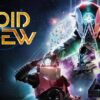The PlayStation Vita is dying a slow death, and releases that arrive with any sort of fanfare are becoming increasingly few and far between. Lost Dimension, a tactical RPG from developer Lancarse, is at least hoping to give Vita owners something to smile about, with its release in Japan last year gaining a solid critical response. Taking place after a series of devastating attacks around the world and the appearance of a mysterious tower, Sho Kasugai and a team of 10 other psychics must enter the tower to defeat The End, who promises to level every major city in the world after 13 days.
The strongest aspect about Lost Dimension on the Vita is that its gameplay perfectly matches the handheld nature of the system. As a mix between visual novel/relationship manager and RPG, Lost Dimension’s gameplay is broken down into manageable chunks, with quests taking anywhere between five and twenty minutes. Outside of combat, gameplay is almost entirely menu and text based, meaning that you can be distracted without missing anything of note. It also helps that the story is restricted to pre- and post-mission screens, and chapter breaks, meaning that you’ll know in advance when full attention is needed, and when you’ll be able to take your eyes off of the screen if necessary.
Lost Dimension’s main hook is that amongst your team of psychics, some of them are traitors to your cause. Each level of the tower brings with it a new traitor, and your job as Sho is to figure out who this is and convince the rest of your team to vote to erase them at the end of the floor. For the first playthrough, the traitor at the end of the first level is predetermined, in order to explain the mechanics, but from them onwards the traitor is random, which adds a good reason to replay the game following completion.
Following each mission, Sho is given the chance to talk to his fellow team members, which raises their trust in him and allows the player to explore the backstories of their fellow psychics. Some of them will also approach Sho for his opinion on who the traitor is, which can influence who they will vote for at the end of the level depending on their opinion of Sho. Though you can’t really determine exactly who the traitor is without using Sho’s Deep Vision ability, each battle is followed by a short scene that gives clues to the traitor’s identity, provided you included them in your quest party for that particular mission.
Each character is defined by their particular Gift, which is the name given to their psychic ability. These range from pyrokinesis to electromagnetism, and affect which upgrades they can unlock, such as being able to burn enemies or give buffs to fellow party members. A neat touch is that those characters with abilities such as teleportation or levitation have these gifts reflected in their movement in battle, with those who can levitate hovering slightly above the ground and those who can teleport disappearing in a puff of smoke until their movement in complete. Gifts are gained or strengthened by leveling up, and it’s a good idea to rotate your party often, not just to find out who the traitor is, but also to ensure you have a balanced team. Those not currently fighting do gain experience alongside those in your active party, but it’s at a noticeably reduced rate.
Combat in Lost Dimension plays out similarly to other non-grid based tactical RPGs, with movement range and attack range dictated by a player’s level, and accuracy and damage affected by distance from a target. Perhaps the most unique aspect of Lost Dimension’s combat is the SAN meter. A character’s sanity is affected by receiving damage and using Gifts and other abilities, and the longer a battle goes on for, the lower it falls. If it reaches zero, the character turns berserk and attacks friend and foe indiscriminately, as well as becoming susceptible to massive amounts of damage. For this reason, you’ll want to wrap up battles as quickly as possible.
Each mission in the game is assigned a star rating for difficulty, which can be viewed on the mission select screen. Alongside this you are able to see the layout of enemy forces, the map for the level you’re about to start, and the rewards gained for completing the mission. Finishing a level grants a number of items alongside experience but managing to gain an S-rank unlocks an extra, usually high-level, item, which encourages going back and replaying missions once you are stronger. This is advised anyway, particularly as you progress through the game, as each level only contains six missions, meaning that in order to defeat later enemies, you’ll need to play early levels repeatedly to improve your characters abilities and become strong enough to progress. Although each floor of the tower has a different aesthetic in terms of level environments, you’ll spend a lot of time viewing the same visual elements, so be prepared for a fair amount of repetition, though that isn’t entirely uncommon for the genre.
Lost Dimension is a solid entry in the RPG genre, but I didn’t come away from it feeling as if I’d have missed anything had I not played it. The traitor aspect of the game is heavily relied upon in the narrative, but I must admit that it didn’t affect the way that I played the game, especially in combat. I didn’t find myself leaving anyone out of my party, as I never felt as if I had anyone working against me, and for the most part it doesn’t feel as if the traitors serve any real purpose in the game aside from being a plot point that you can occasionally interact with. Aside from that, the battle system is enjoyable, the interaction with and range of other characters is interesting, and the game itself lends itself perfectly to the PS Vita platform, but Lost Dimension isn’t particularly a game that stands out amongst a crowd of other RPGs on the platform. It’s a well-made game, but a largely unremarkable one.


